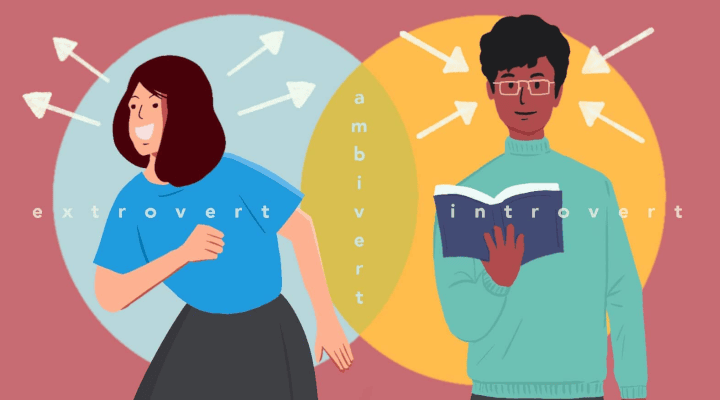Ambiverts: The Best of Both Worlds

Some introverts might find that, contrary to popular belief, they have the energy to talk to more than two people a day. Extroverts may sometimes end up being the quiet ones in a group conversation.
Some people identify with both introverts and extroverts, but do not see themselves as either. This group of people can be considered to be ambiverts.
A More Adaptable Personality
Ambiverts exhibit traits of their two more well-known counterparts: introverts and extroverts. The “ambi-” prefix means “on both sides”.
Extroverts are perceived to be more outgoing and talkative; they gain energy from engaging in activities involving other people. Introverts are associated with quiet environments and being more reserved. They typically regain energy by being alone.
If introverts and extroverts are on opposite ends of the spectrum, then an ambivert is generally in the middle.
Ambiverts May Make Better Leaders
A great leader, says psychology professor and author Brian Little, is able to act “out of character”. Since ambiverts are seen as a mix of introverts and extroverts, they possess the good qualities of both. As leaders, ambiverts may find it easier to adjust their behaviour depending on the situation.
Adam Grant, a professor at the University of Pennsylvania and an organisational psychology specialist, posits that ambiverts are adept at balancing both speaking and listening, a vital quality for salespeople. This flexibility makes ambiverts a valuable asset in any team setting, regardless of the industry.
Ambiverts also tend to be more sensitive to others. This allows them to notice when an introvert is struggling to get their point across, especially within a team of extroverts. In this scenario, an ambivert could act as a bridge between the introverts and the rest of the group so that their voices are equally heard.
However, having such sensitivity has its drawbacks. Ambiverts might dedicate too much energy to ensuring the team dynamics are smooth between both parties. And constantly adapting to act like either introverts or extroverts can be draining, suggests Professor Karl Moore of McGill University.
The key for ambiverts, as with anyone else, is to find activities that help them best re-energise.

Do Labels Matter?
The good news is most of us are probably ambiverts. Even if you’re not, most people do not stick to an extreme side of the spectrum, and can learn to adapt to different situations and groups of people.
Personality tests that indicate one’s level of introversion or extraversion should also be taken with a grain of salt, as they are often self-reported. Less rigorous tests have answer options that clearly lead to certain results.
Different cultures may also value extroversion over introversion, or vice versa. The outcome is the same: skewed results.
Carl Jung, the Swiss psychiatrist who first defined introversion and extraversion, adds that “there is no such thing as a pure extrovert or a pure introvert… Those are only terms to designate a certain penchant, a certain tendency.”
Ultimately, your personality “type” does not define your success at work. To become more adaptable, a good starting point is to be objective about your strengths and weaknesses. Observing people around you, especially those who are unlike you, also provides opportunities for picking up desirable qualities from others.
- POSTED ON
Sep 19, 2022
- TEXT BY
Amos Ng
- ILLUSTRATION BY
Mushroomhead









